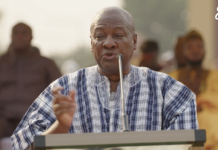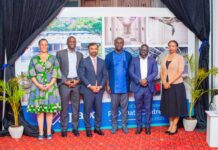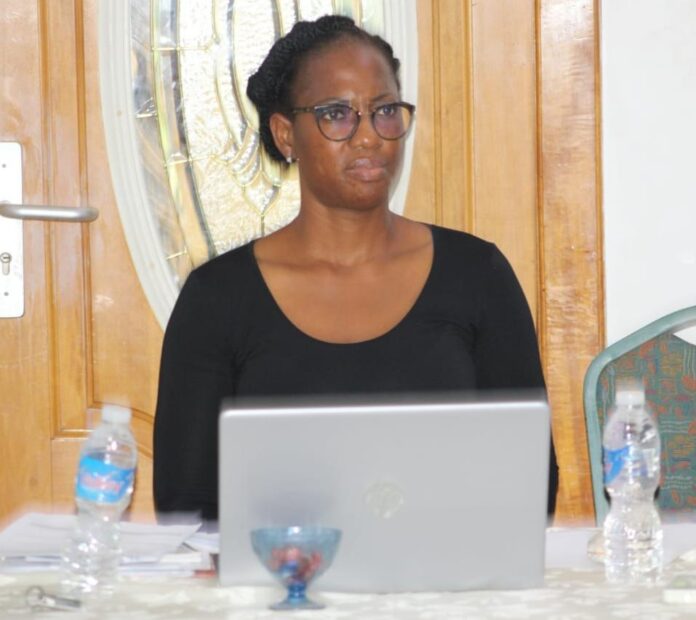
The Media Foundation for West Africa (MFWA) has warned that Ghana risks a further fall in its global peace ratings if the media fails to refrain from deliberately or ignorantly broadcasting false information, hate speech, and intemperate language peddled by politicians and persons of influence.
Senior Programs Manager in charge of Institutional Development with the MFWA Rosemond Ebi-Adwo gave the caution at the opening of a two-day media workshop organized by the MFWA on countering hate speech and intemperate language to safeguard the peaceful democratic credentials of the country.
She drew the attention of participating journalists and editors to Ghana’s huge drop in the Global Peace Index compiled by the Institute for Economics and Peace.
In just one year Ghana dropped 11 places from its 40th position in the 2022 global peace index coming 51st in the world in 2023.
Ghana further lost its position as the 2nd most peaceful country in Africa to the 4th place falling behind countries like Sierra Leone, Botswana, and Mauritius.
Rosemond Ebi-Adwo partly attributed this to the unfettered use of intemperate language in the media usually perpetrated by political actors and national leaders and called on the media to play its watchdog roles more seriously.
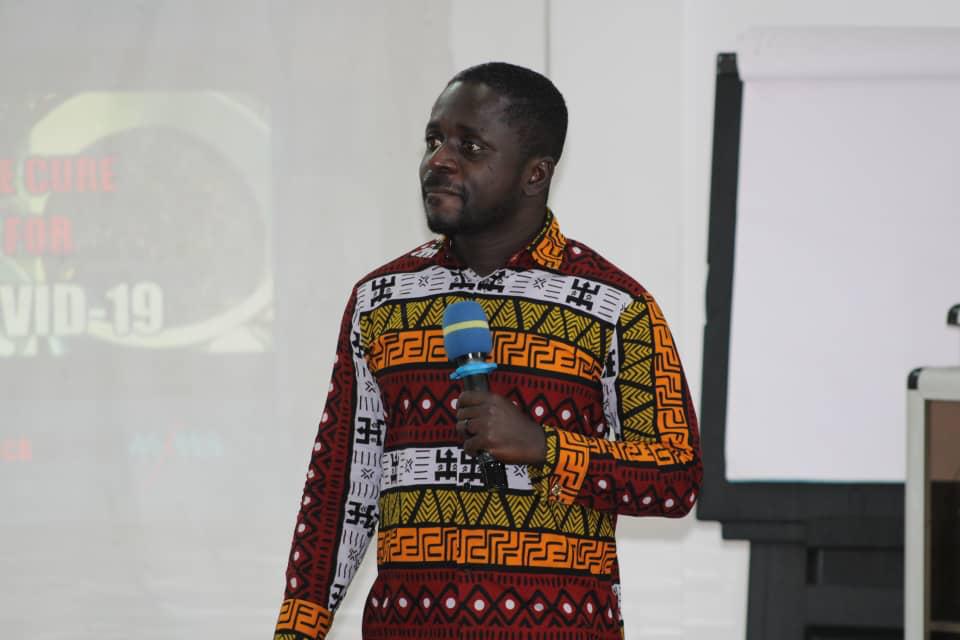
No-Tolerance Approach
The Ashanti regional Executive Secretary of the Peace Council Rev Emmanuel Badu Amoah challenged the media to adopt a no-tolerance approach towards politicians peddling hate speech and intemperate language.
According to Rev. Badu Amoah, there is a growing trend of politicians weaponizing the media against national institutions.
He expressed worry this trend has the potential of destabilizing the peace and democracy of the country especially as Ghana inches towards the heated political campaigning period.
He observed, “For the past 32 years, our democracy has grown but hate speech and indecent language have also been a negative tool. Now their plan is to use it against national institutions,”
“If anyone wants to come to power and his aim is to destroy institutions; he is not ready for democracy because democracy is held together by the institutional strength of your governance structures,” he insisted.
Rev. Badu Amoah described as empty and visionless, politician who pay little attention to the effects of their inflammatory statements on the public’s trust in state institutions.
“Because they don’t have any policies and governance systems they want to bring in, they always talk and insult others as a tool for campaigning. As media, we shouldn’t allow ourselves to be used for such things,” he cautioned.
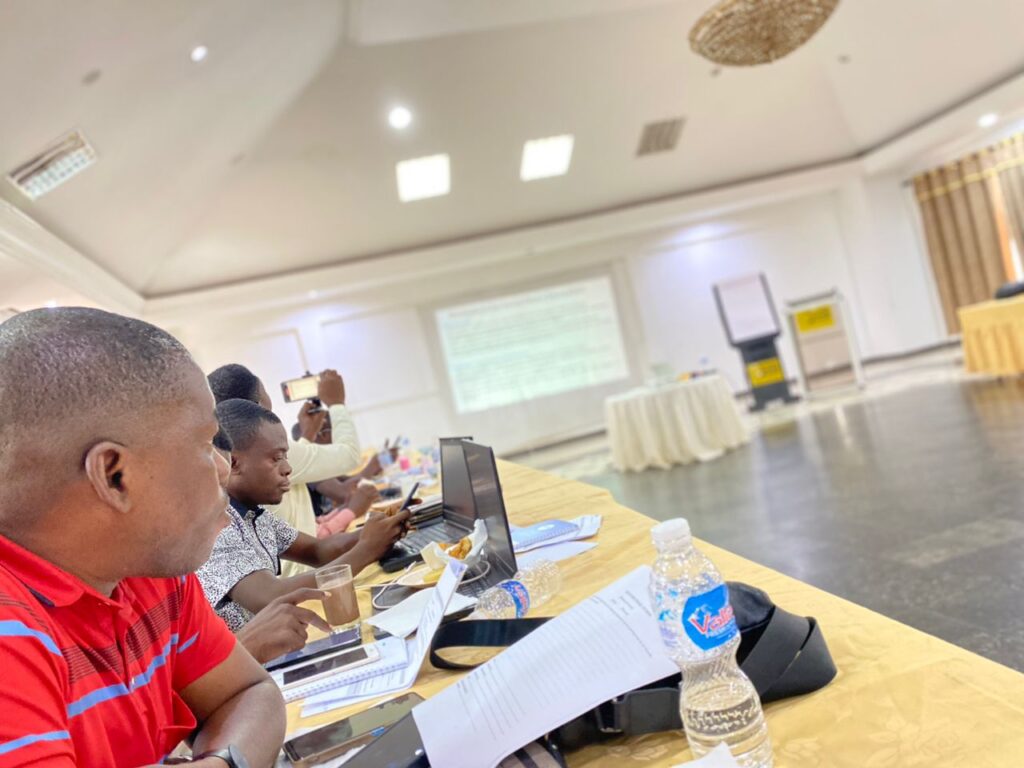
Peace Reporting
The workshop aimed at equipping journalists in handling triggers of conflicts, electoral violence, terrorism, and information disorder in the line of duty.
Research Fellow with the University of Cape Coast Department of Peace Studies Dr. Kaderi Bukari Noagah enlightened journalists about the different conditions that generate and fuel ethnic, political, and trans-border conflicts.
Dr Bukari Noagah shared valuable research about the currents, factors, and conditions fueling violent extremism and terrorism within the Sahel and the extent of the threat Ghana is exposed to.
He relayed responsible and sensitive approaches the media could adopt to be actively involved in disseminating information that enforces national peace-building; conflict resolution and counter-terrorism.
Role of Journalists
Senior Programs Officer with the MFWA Kwaku Krobea Asante provided relevant training on the new and emerging trends of information disorder; techniques for fact-checking and the potency of new media in spreading untruths.
Speaking to Ultimate/Starr FM’s Ivan Heathcote–Fumador, he underscored the relevance and timeliness of this training, especially at a time Ghana faces unresolved ethnic conflicts; a pending national election, and the threat of extremism and terrorism,”
He pointed out, “We appreciate the critical role the media plays during these times. How we cover the issues report and bring them to the public could play a role in how people appreciate the issues; whether we create fear and panic
“Especially towards elections, it has direct impact on the electoral processes and the trust of the electoral outcomes. We are building the capacities of our journalists to understand and deal with these things should they happen,”
The ongoing nationwide workshop was held under the theme “Countering hate speech and polarizing narratives to foster democratic consolidation and peace in Ghana.
Aside the workshop, the MFWA is readying itself to commence its election-year media monitoring against hate speech and intolerant language
The Foundation has also announced its plans to engage political parties as well as young Ghanaians usually exploited for electoral violence.
Source: Ghana/Starrfm.com.gh/103.5FM/Ivan Heathcote–Fumador


